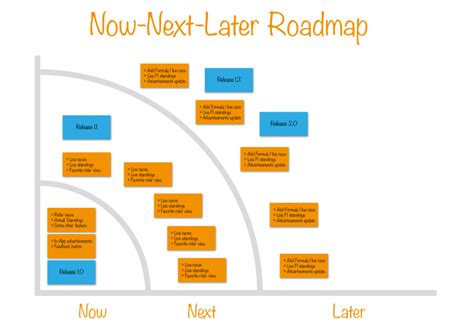Chevy's Relevance Roadmap: What's Next?
Chevrolet, a name synonymous with American automotive history, is navigating a rapidly changing landscape. The industry is undergoing a dramatic shift towards electrification, autonomous driving, and connected car technologies. So, what's next for Chevy, and how is it planning to maintain its relevance in this fiercely competitive market? This article delves into Chevy's strategic roadmap, examining its current offerings and future projections.
What are Chevy's current best-selling vehicles?
Chevrolet's current lineup boasts a range of popular vehicles catering to diverse needs and preferences. Their best-sellers consistently include trucks like the Silverado, a perennial favorite in the full-size pickup segment, and SUVs such as the Equinox and Traverse, which dominate the compact and mid-size SUV markets respectively. The Camaro, though facing a declining muscle car market, still holds a loyal following. This diverse portfolio allows Chevy to tap into multiple market segments, ensuring a broad customer base. However, the brand’s continued success hinges on its ability to adapt to evolving consumer preferences and technological advancements.
How is Chevy embracing electric vehicles?
Chevrolet is aggressively pursuing electrification, recognizing its crucial role in the future of the automotive industry. The Bolt EV and EUV have already made significant inroads, showcasing Chevy's commitment to electric mobility. Furthermore, Chevy is integrating electric powertrains into existing popular models and developing new EV-specific platforms. This dual approach allows Chevy to leverage the familiarity of its established brands while simultaneously exploring the potential of dedicated EV architecture. The upcoming Silverado EV and Blazer EV are prime examples of this strategy, aiming to attract customers seeking both electric performance and the brand recognition of established Chevy models.
What about Chevy's plans for autonomous driving?
While fully autonomous driving remains a long-term goal for the industry, Chevy is incrementally integrating advanced driver-assistance systems (ADAS) into its vehicles. These features, encompassing adaptive cruise control, lane keeping assist, automatic emergency braking, and parking assist, improve safety and enhance the driving experience. While completely self-driving Chevrolets might still be some years away, the progressive addition of ADAS technologies positions Chevy strategically for the future of autonomous driving. This phased approach allows the brand to build consumer confidence and gather valuable data for future development.
What role will connectivity play in future Chevy vehicles?
Connectivity is another key element of Chevy's future strategy. Their vehicles are increasingly incorporating features such as Wi-Fi hotspots, infotainment systems with over-the-air updates, and integrated smartphone applications. These advancements enhance driver convenience, provide access to entertainment and information, and enable remote vehicle monitoring and control. Furthermore, connectivity facilitates data collection which is invaluable for improving vehicle performance, predicting maintenance needs, and developing future technologies. The seamless integration of these connected services will be crucial in maintaining Chevy’s competitiveness.
Is Chevy focusing on sustainability beyond EVs?
Chevrolet's commitment to sustainability extends beyond electric vehicles. The brand is actively pursuing more sustainable manufacturing processes, aiming to reduce its environmental footprint. This encompasses initiatives aimed at minimizing waste, optimizing energy consumption, and utilizing recycled materials in vehicle production. This broader approach reflects a growing consumer demand for environmentally responsible practices, showcasing Chevy's dedication to corporate social responsibility.
What are the biggest challenges facing Chevy in the coming years?
Despite its strategic initiatives, Chevy faces significant challenges. The intense competition from established and emerging automakers, the rapidly evolving technological landscape, and fluctuating economic conditions present substantial hurdles. Maintaining brand loyalty while adapting to new technologies and consumer preferences will be crucial for long-term success. Successfully navigating these complexities will require continuous innovation, strategic investments, and a keen understanding of market trends.
In conclusion, Chevrolet's relevance roadmap hinges on its ability to successfully navigate the ongoing transformation of the automotive industry. By embracing electrification, focusing on advanced driver-assistance systems and connectivity, and prioritizing sustainability, Chevy aims to maintain its position as a leading automotive brand for years to come. The success of this ambitious roadmap will depend on the brand's ability to innovate, adapt, and consistently deliver on the expectations of a discerning and evolving consumer base.

